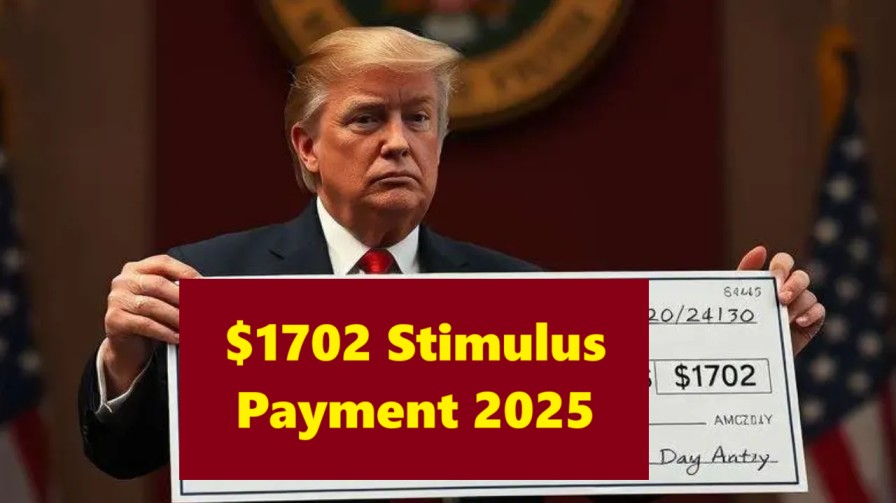A New Proposal for “Trump Accounts” to Boost Wealth from Birth
There’s a new proposal making waves in the House of Representatives, one that could change the way families approach long-term wealth-building. The idea is to give every baby born in the U.S. between 2025 and 2029 a federally managed investment account, seeded with an initial $1,000. Known as “Trump accounts,” the plan aims to provide a unique opportunity for families to build financial assets right from birth. It’s a move that could give future generations a rare chance to start their financial journeys with a solid foundation.
What Are Trump Accounts?
Originally dubbed the MAGA (Money Account for Growth and Advancement) accounts, the proposal has now been rebranded to reflect former President Donald Trump’s influence. These accounts, managed by the U.S. Treasury and partnered with financial institutions, would be automatically created for every eligible newborn in the country.
The idea is simple but powerful: every child born during the designated time period will receive a $1,000 contribution from the federal government. This money would be invested in the stock market, with the potential for growth. Families or other third parties can contribute up to $5,000 annually, turning these accounts into significant assets for future goals like education, homeownership, or starting a business.
Who Qualifies and How It Works
Eligibility for Trump accounts is automatic for all U.S. children born between January 1, 2025, and January 1, 2029. The only requirement is that both the child and their parents have valid Social Security numbers. No application is needed—once the baby is born, the account is set up, and the initial investment is made.
The U.S. Treasury would oversee the investments, likely using a passive approach with diversified portfolios or index funds. This method minimizes fees and risks, while allowing the money to grow alongside the broader economy.
A Model Inspired by State Programs
While the federal proposal is a first on such a large scale, there are state-level initiatives that have followed similar models. For instance, Colorado provides newborns with a $100 starter fund, with the opportunity for matching contributions up to $500 annually for five years. The federal Trump account would offer a much larger starting balance, allowing for even greater long-term growth.
How and When the Money Can Be Used
The funds in Trump accounts aren’t meant for immediate spending. Instead, they are designed to help families build wealth over time with certain restrictions on how and when the money can be withdrawn.
- At age 18: Half of the funds can be accessed for approved purposes, such as college tuition, buying a home, or launching a business.
- Between ages 25 and 30: The remainder becomes accessible for those same wealth-building goals.
- After age 30: The account holder may withdraw the remaining balance for any purpose.
This structure is designed to encourage responsible spending and to help break the cycle of intergenerational poverty by giving young adults the tools they need to succeed.
Tax and Penalty Details
Withdrawals for approved purposes would be taxed at the long-term capital gains rate, which is typically lower than regular income tax. However, if the funds are withdrawn early for non-approved reasons, they would be subject to regular income tax and a 10% penalty—similar to how early retirement withdrawals are taxed.
Some critics have raised concerns that such penalties could disproportionately affect low-income families who might face financial emergencies. There are ongoing discussions about whether hardship exemptions will be added to allow early access without penalties in certain situations, like for medical bills or to prevent eviction.
A Modern Take on “Baby Bonds”
Trump accounts are often compared to past “baby bond” proposals, especially the ones from Democrats like Senator Cory Booker, who pitched an idea for a $1,000-per-child fund aimed at reducing racial and economic wealth gaps. The key difference between baby bonds and Trump accounts lies in how the funds are invested: baby bonds typically offer guaranteed returns, while Trump accounts would invest in the stock market, which could result in higher returns—or losses.
Proponents of the Trump plan believe that by tying the funds to market performance, the returns could be much higher over the long term, especially with the added option for families to contribute money each year.
Potential Roadblocks and Debate
While the proposal has generated significant interest, it’s not without its challenges and critics. Some of the key concerns include:
- Tax treatment uncertainty: People are questioning whether the accounts offer real advantages over existing options like 529 college savings plans or child IRAs.
- Equity issues: Critics worry that without emergency-use exemptions, families facing difficult circumstances may find the program unhelpful in the short term.
- Market volatility: What happens if market downturns happen just before the children turn 18? This could wipe out the gains the accounts had accumulated.
Despite these hurdles, supporters argue that this initiative could provide every child—especially those from low-income families—with a significant financial leg up that could have transformative effects over time.
FAQs
What are Trump accounts?
Trump accounts are federally managed investment accounts, funded with $1,000 for every newborn in the U.S. from 2025 to 2029. The money would grow over time by investing in the stock market.
Who qualifies for a Trump account?
Any child born in the U.S. during the program period, as long as both the child and their parents have valid Social Security numbers, will automatically be enrolled.
Can families add money to the account?
Yes, families or others can contribute up to $5,000 annually to the account, helping the investment grow over time.
What can the funds be used for?
The funds can be used for approved purposes like college tuition, buying a home, or starting a business. After age 30, the funds can be used for any purpose.
Are there penalties for early withdrawal?
Yes, non-approved withdrawals are taxed as regular income and subject to a 10% penalty, unless exceptions for specific circumstances are introduced later.
Is this similar to baby bonds?
Yes, but unlike baby bonds that generally guarantee returns, Trump accounts invest in the market, which has the potential for higher (but less predictable) growth.
Will the plan become law?
The proposal is still under debate, and it would need to be approved by Congress. Its future depends on political negotiations and public support.
Bottom Line
The Trump account proposal is a bold initiative that aims to give every child a financial start from birth. Whether it becomes law or not, it’s sparking a much-needed conversation about how to close the wealth gap and provide future generations with more opportunities to build wealth.


